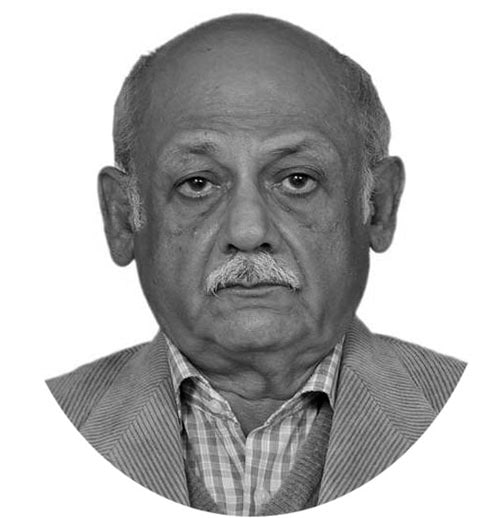India-Pakistan dialogue
THE Indian subcontinent is one of the most critical and volatile regions in the world. This region has always been plagued with interstate differences, violence and bloodshed between the two nuclear armed countries dash is India and Pakistan.
This hostile and many times violent relationship dates back to 1947 in spite of efforts by the international community to bring peace and stability to this region all efforts have remained unsuccessful and unproductive.
This rabid hostility between the two neighbours has prevented any major improvement in the social, political or economic conditions of both countries.
Recent dramatic developments could prove to be the proverbial light at the end of the tunnel that is the thaw in the frigid relations between the two countries.
The two countries are once again showing a desire and a willingness to engage in dialogue.
There has been a very welcome ceasefire along the line of control and the start of talks on the Indus Water Treaty and the receipt of a letter by the Indian PM congratulating Imran Khan.
It is also hoped that India will attend the SAARC summit scheduled to be held in Pakistan; the last summit in 2017 had been boycotted by India.
Imran Khan’s interest to start negotiations with India over Kashmir to increase trade to settle the thorny water issues and to address the problem of poverty is a very welcome initiative.
Immediately after Imran Khan’s initiative another very dramatic and happy development is the desire of the COAS General Bajwa to bury the past and move forward for the greater good of the people on both sides of the border.
Most countries with a soft corner for Pakistan have always tried and worked for easing tension between India and Pakistan.
We cannot forget the role played by China the US and the UK. Recently Saudi Arabia and the UAE have been in the forefront of these peace efforts.
The UAE has engaged in some hectic backdoor diplomacy and resultantly meetings between our army high command and the Indian National Security Advisor took place in the UAE bringing about this initial thaw in the solidly frozen relations between the two hostile neighbours.
It is hoped that the Army high command in Pakistan will seriously consider and move forward to disarm and remove from the national scene all religiously motivated violent extremist groups and to establish the writ of the state in matters of solving outstanding disputes with India through dialogue.
We will also need to eradicate the senseless theory of strategic depth and the use of strategic assets as an instrument of foreign policy.
Another surprising and interesting development has been the speech of the Army Chief at the Islamabad Security Dialogue when he talked about resolving the Kashmir issue by renewed efforts and a different approach.
He spoke about the role of CPEC, and his advice to the PM on Kashmir and how to improve relations with our neighbour.
This certainly is a surprising and unlikely public statement from the Army Chief and definitely the very first in the history of the Pakistan Army.
This phase is the start of a new bold and critical initiative. The future holds a lot of promise but the path is full of perils, pitfalls and dangers of derailment as it has happened repeatedly in the past.
First of all our policy planners and the wise people of the foreign office have to plan a practical serious and applicable strategy to move forward in this new dialogue with India and to avoid any further deadlock on thorny issues like Siachin and Sir Creek.
Tempers and rhetoric has to be reined in such as the Imran Khan statement equating Narender Modi to Hitler and the Indian Premier to tone down his words and deeds regarding the Indian Muslims and to improve his country’s record on human rights which happens to be the lowest since independence.
Countless rounds of talks have taken place on Siachin and every time we start from the beginning again.
It was only in 2007 when a breakthrough was within reach that India pulled out because of some differences between the Indian political leadership and their army high command so what will be different this time? We need a definite roadmap with markers to avoid the mistakes of previous attempts.
Prior to the star of dialogue we also need iron-clad guarantees from India to stop all negative propaganda against Pakistan.
India should also stop lobbying against Pakistan at the FATF forum and to desist from activities like the disinformation campaign from the European disinformation lab.
This is needed to know the extent of Indian sincerity towards this new peace effort.
Kashmir has always been the stumbling block and the biggest impediment in the path to peace.
Since the last few years India has been engaged in bringing about demographic changes in the valley it has laid a siege to the valley and unleashed a campaign of fear and intimidation and oppression so Pakistan needs to take on board the Kashmiri leadership in AJK and IIOK.
—The writer is Professor of History.









